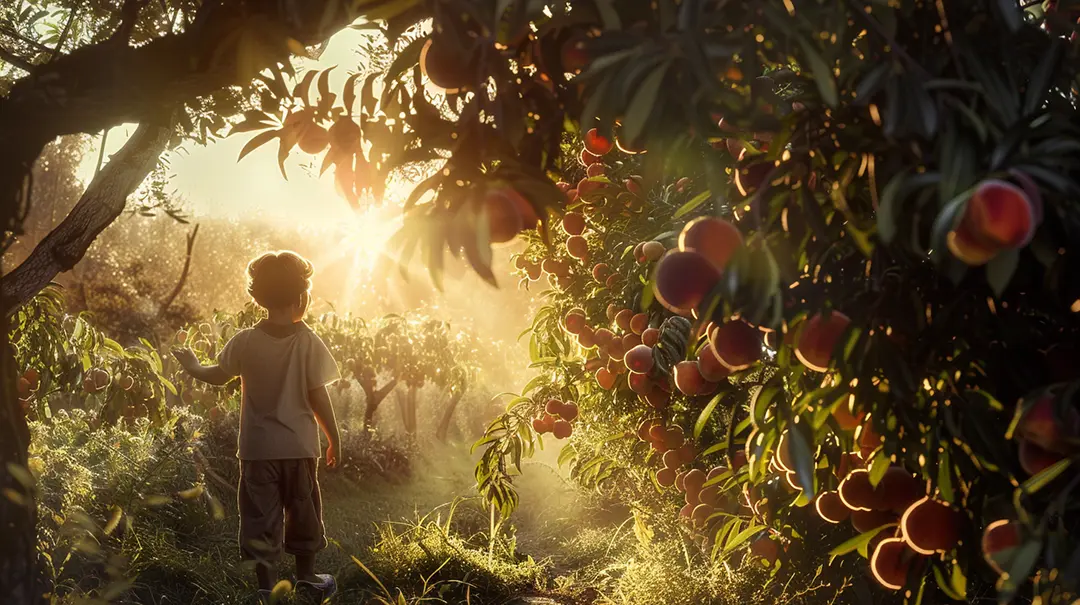
Food nostalgia is triggered by our senses, with smells, tastes, and textures creating powerful memories of home and loved ones. Smell, in particular, is potent in evoking emotions as it connects directly to the brain's memory center. Touch and texture, like the feel of biting into a crisp apple, also contribute to lasting food memories, making certain foods emotionally charged and unforgettable.
Food is more than sustenance; it’s a powerful trigger for memories, transporting us to different times and places. This phenomenon, known as food nostalgia, is often sparked by the senses—taste, smell, and even touch. By exploring how our sensory experiences connect us to our past, we can better understand why certain foods hold a special place in our hearts.
Our senses play a crucial role in forming food memories. The smell of freshly baked bread, the taste of a ripe summer peach, or the texture of a comforting stew can instantly evoke memories of home, holidays, or loved ones. These sensory experiences are deeply intertwined with our emotions, creating a powerful link between food and memory.
For example, the story of “Strange Fruit” illustrates this beautifully. The protagonist recalls a vivid childhood memory of eating peaches in a Mediterranean garden. The warmth of the sun, the aroma of ripe fruit, and the joy of a simple meal in the company of loved ones create an indelible memory. This sensory richness is what makes certain foods unforgettable and emotionally charged.

Among all the senses, smell is particularly potent in triggering memories. This is because the olfactory bulb, which processes smells, is directly connected to the brain’s limbic system, where emotions and memories are stored. This explains why the smell of a favourite dish can instantly transport us back to our grandmother’s kitchen or a childhood holiday.
In “Strange Fruit,” the protagonist’s encounter with the scent of roasted peaches takes him back to his childhood, reminding him of the simple yet profound pleasures of food. This memory is not just about the taste of peaches but also about the feelings of comfort and warmth associated with that time.
Texture and touch also play a significant role in food nostalgia. The physical sensation of biting into a crisp apple, the crunch of roasted nuts, or the creamy smoothness of ice cream can evoke powerful memories. These tactile experiences are often linked to specific moments or rituals, such as sharing a meal with family or celebrating a special occasion.
In the same vein, “Strange Fruit” describes the tactile joy of eating a sun-warmed peach, with juices running down the arm, capturing the essence of a carefree childhood. This vivid sensory detail helps anchor the memory, making it more vivid and lasting.
The concept of ephemeral passion—intense but fleeting experiences—also ties into food nostalgia. The tango scene in “Tango Bus” serves as a metaphor for these fleeting but unforgettable moments. Just as a dance can evoke a whirlwind of emotions, certain foods can elicit a cascade of memories and feelings.
These sensory experiences are often transient, yet they leave a lasting imprint on our minds. The protagonist’s journey from childhood memories of peaches to the adult experience of tango captures the essence of how food and sensory experiences can shape our perceptions and memories.
Food nostalgia is often amplified when shared with others. Communal meals, family recipes, and traditional dishes can strengthen our bonds with loved ones and create shared memories that last a lifetime. The joy of cooking and eating together, as depicted in “Strange Fruit,” highlights the communal aspect of food nostalgia.
The protagonist’s reminiscence of shared meals and the communal preparation of food underscore the importance of these experiences in shaping our identities and cultural heritage.
Flavours experienced during significant events carry strong emotional resonance. Positive emotions can make a food memory more robust, while negative experiences can create lasting aversions. In “Strange Fruit,” the taste of peaches is tied to happy childhood memories, highlighting how emotions can enhance the pleasure of certain foods and embed them deeply in our memories.
The setting in which we enjoy food affects how we remember its taste. Context, such as a festive celebration or a family meal, plays a crucial role in embedding these memories. A simple meal can become unforgettable when shared in a special setting. The story of “Strange Fruit” illustrates this, where the environment of a Mediterranean garden enhances the memory of eating peaches.
Flavour is a complex experience involving sight, smell, touch, and sound. The brain integrates these sensory inputs to form a cohesive memory. This multi-sensory processing allows us to recall not just the taste but also the emotions and settings associated with it. The story in “Strange Fruit” highlights how these sensory experiences combine to create a powerful memory.
Food nostalgia, often evoked by taste and smell, can enhance our emotional well-being. These memories provide comfort and a sense of continuity, helping us connect with our past. In “Strange Fruit,” the nostalgia for childhood peaches evokes warmth and joy, illustrating how food memories can be both comforting and emotionally significant.
Understanding how taste, smell, and context contribute to food memories helps us appreciate the deep connection between our senses and emotions. Whether through a familiar dish or a festive meal, these memories enrich our lives, much like the reflections in “Strange Fruit” remind us of the enduring power of food to connect us to our past.
Food nostalgia is a powerful and complex phenomenon, deeply rooted in our sensory experiences and emotions. Whether it’s the taste of a childhood favourite, the aroma of a traditional dish, or the texture of a beloved treat, these memories are a testament to the profound connection between food and memory. Understanding and embracing these sensory experiences allows us to appreciate the rich tapestry of our culinary past and its impact on our present lives.

At Med.kitchen, our passion lies in crafting exceptional culinary experiences through our online platform. We specialise in sharing a wealth of knowledge via articles, recipes, courses, and online mentoring, aiming to inspire both novice and seasoned chefs alike. Our focus has shifted from private dining to being an online source of gastronomic inspiration, allowing you to explore and refine your culinary skills from the comfort of your home..